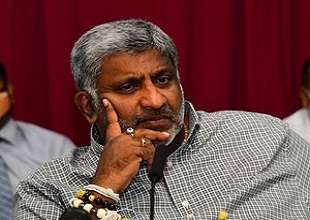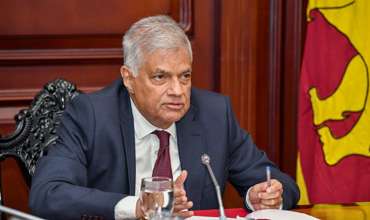By David J. Lynch [www.washingtonpost.com]
The International Monetary Fund on Tuesday said the coronavirus pandemic is causing the worst economic downturn since the Great Depression of the 1930s, as a return to normal activity in the United States appeared likely to take months longer than President Trump has indicated.
While White House officials eye May 1 as a potential restart date, activity in key parts of the U.S. economy suggests that Americans will not be able to return to business as usual that quickly.
Permits for new single-family homes are headed for an April decline of up to 50 percent, which will probably depress construction activity for months, Goldman Sachs said Tuesday. With consumers reluctant to brave crowded movie theaters anytime soon, Disney this week officially delayed the scheduled mid-June opening of “Soul,” an animated Pixar film, to Thanksgiving. And Jamie Dimon, the chief executive of JPMorgan Chase, said Americans will return to work only gradually, depending upon conditions in individual regions and industries.
“But it won’t be May,” he told Wall Street analysts. “You talk about June, July, August, something like that.”
At the White House on Tuesday, the president said he would announce on Wednesday the members of a committee charged with advising him on how to reopen the economy. Trump has sent mixed signals about his intentions in recent days, first deferring to state governors in managing the pandemic response before insisting Monday that he had “total” authority to dictate the terms of the country’s reopening.
Tuesday, he said the committee’s aim will be to produce “guidelines to give governors the information they need to start safely opening their states,” an apparent step back from his claim of absolute power less than 24 hours earlier.
“We’re very close to completing a plan to open our country, hopefully even ahead of schedule,” the president told reporters Tuesday.
The urgency of reviving the world’s largest economy was underscored by the IMF’s annual world economic outlook, which predicted that the global economy will shrink by 3 percent this year before staging a partial rebound in 2021. The new forecast represents an abrupt reversal from just three months ago, when the fund said the global economy would expand this year by 3.3 percent.
Here’s what reopening the economy is likely to look like: More masks, fewer workers, high unease
World output over the next two years will fall $9 trillion short of what was expected before the crisis, akin to having both the German and Japanese economies vanish, said Gita Gopinath, the fund’s chief economist.
“This makes the 'Great Lockdown’ the worst recession since the Great Depression and far worse than the global financial crisis,” Gopinath said.
The U.S. economy, which the president this month said was “probably the best economy in the history of the world” before the crisis, is in the midst of a historic tailspin. By the end of this week, 25 million Americans will have filed for unemployment benefits since the sudden pandemic crash in mid-March, obliterating all 22 million jobs created since the end of the last recession in 2009, said Torsten Slok, chief economist Deutsche Bank Securities.
“A decade of job gains undone in just four weeks,” Slok wrote in a research note Monday.
JPMorgan, the nation’s largest bank, reported Tuesday that it had set aside $6.8 billion to cover potential losses on loans to companies and consumers, with Dimon saying the bank expected “a pretty severe recession.”
The bank’s first-quarter earnings of $2.9 billion fell 69 percent from the same period one year earlier.
The IMF says the U.S. economy will contract by 5.9 percent this year and grow by 4.7 percent next year, leaving it still worse off at the end of next year than the fund had expected in January.
And the economic erosion continues to worsen.
Betting on either an extended lockdown or consumer jitters, most Hollywood studios have postponed their major spring or summer releases until at least the fall. Only a handful of films are now scheduled to appear before August, including Warner Bros.' “Tenet” and Disney’s “Mulan,” both slated for the second half of July.
A continuing theater shutdown would eat into the 13-week season that begins at the end of April and last year accounted for nearly one-third of the industry’s $11.4 billion in annual domestic box office receipts.
An early reopening is critical for companies such as AMC. The nation’s largest theater chain, which owns 20 percent of the country’s 40,000 movie screens, could file for bankruptcy protection. This week it entered talks with the law firm Weil Gotshal to explore its options.
Manufacturing likewise continues to sag. Auto production this month will be 75 percent below its February level with General Motors, Ford and Fiat Chrysler all having padlocked plants last month, according to Goldman Sachs.
Still, factories are likely to make a quicker comeback than service industries, which rely more on face-to-face customer contact. Automakers are planning to be back at 70 percent of precrisis production in June, Goldman said.
Though the IMF expects a punishing global recession, the downturn will not be as severe as in the 1930s, when the worldwide economy shrank by an estimated 10 percent, Gopinath said. The current recession is expected to trim world output by 3 percent.
Still, this is the first time since the Depression that advanced areas like the United States, Europe and Japan as well as developing nations in Africa, Asia and Latin America are simultaneously mired in recession, said Gopinath, an Indian economist who joined the IMF last year.
While the fund expects the pandemic to peak by midyear, the United States will remain below its precrisis growth trend through 2021. And the fund acknowledged that its forecast could prove overly optimistic if the pandemic lingers.
Some outside analysts were skeptical of the prospects for the quick recovery that the fund expects. Dani Rodrik, a prominent economist at Harvard’s Kennedy School of Government, called the forecasts “crazy” and “beyond wishful thinking."
More than 90 countries already have approached the fund seeking some type of financial assistance to help them weather the pandemic. Many developing nations are suffering a rising health-care burden along with the loss of revenue from tourism and commodities sales, Gopinath said.
“This is a truly global crisis, as no country is spared,” she said.
The fund has been racing to extend financing help to hard-hit countries such as Senegal, Tunisia and Albania. On Monday, the global lending agency said it had approved $1 billion for Ghana under a new “Rapid Credit Facility.”
Global finance ministers and central-bank chiefs backed debt relief for the world’s poorest nations Tuesday as part of a coordinated response to the deepening global recession.
The finance leaders from the Group of Seven said they would suspend debt service payments that poor countries owe to other governments if all Group of 20 nations agreed to back the move, as expected. In a statement following a virtual meeting to discuss the crisis, the finance leaders endorsed efforts to get global banks to offer similar relief to the 76 countries eligible for the World Bank’s easiest loan terms.
The aim is to free up money that the countries need to fund medical care and to support their economies during the pandemic.
“The scale of this health crisis is generating unprecedented challenges for the global economy,” said the G-7 finance leaders, representing the United States, Canada, Germany, Japan, Britain, Italy and France.
IMF officials said individual governments should combat the pandemic by spending freely on medical care and aid for the unemployed before pivoting next year to stimulating economic growth.
With the crisis response efforts, sovereign debt is expected to balloon. But assuming that the global recovery emerges as expected next year and interest rates remain low, governments should be able to whittle away at their debt burdens, Gopinath said.
New trade barriers represent a threat to the recovery, she said. Several countries, including the United States, have imposed restraints on exports of medical equipment needed to fight the pandemic. And Gopinath said the strong recovery the IMF projects will not materialize “if the world de-globalizes."
Steven Zeitchik in Los Angeles contributed to this report.
















Leave Comments